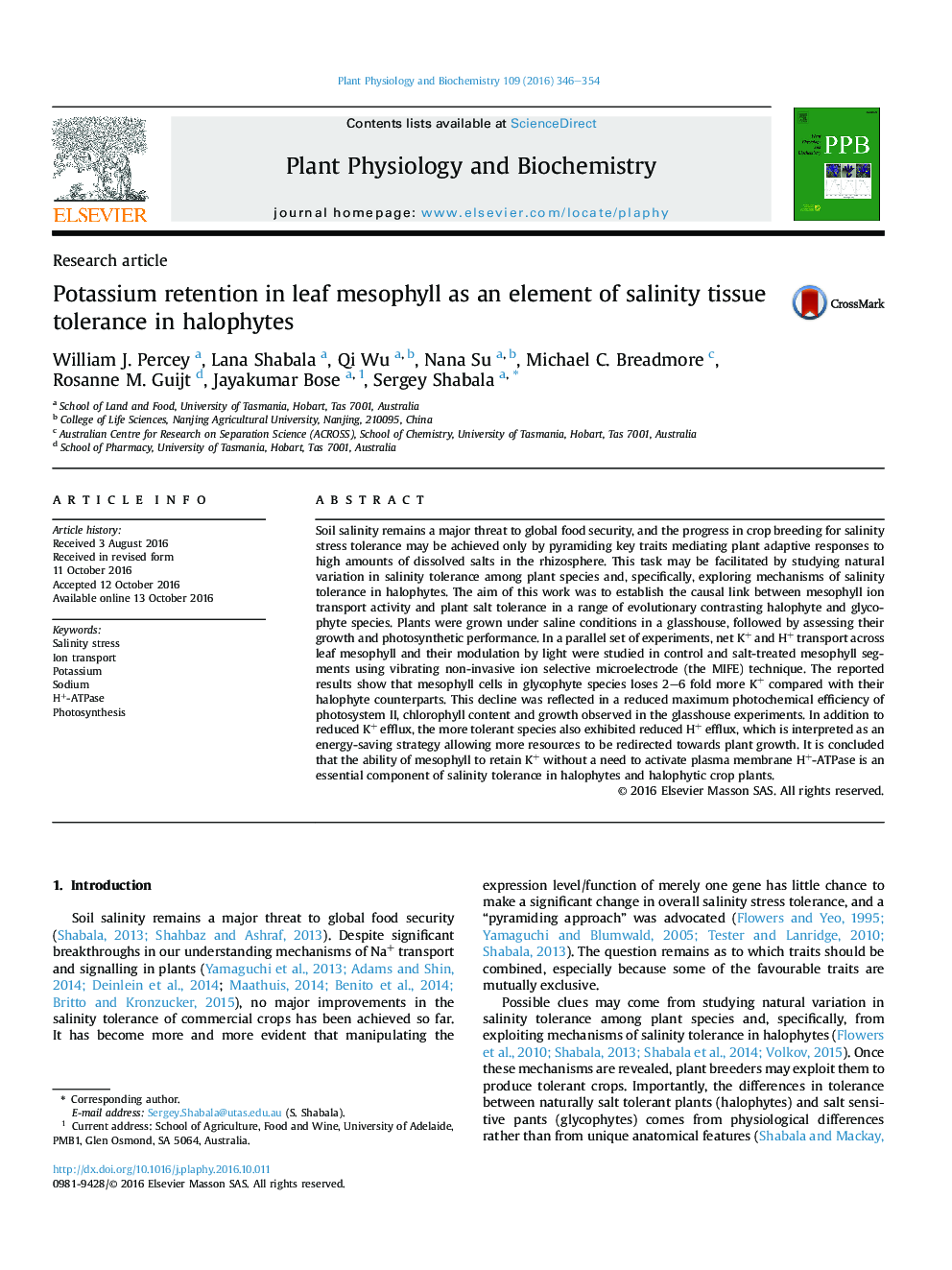| کد مقاله | کد نشریه | سال انتشار | مقاله انگلیسی | نسخه تمام متن |
|---|---|---|---|---|
| 5515652 | 1541912 | 2016 | 9 صفحه PDF | دانلود رایگان |
- Soil salinity remains to be a major threat to the global food security.
- This work linked mesophyll ion transport activity with salt tolerance in halophytes and glycophytes.
- The ability of mesophyll to retain K+ is an essential component of salinity tolerance in halophytes.
Soil salinity remains a major threat to global food security, and the progress in crop breeding for salinity stress tolerance may be achieved only by pyramiding key traits mediating plant adaptive responses to high amounts of dissolved salts in the rhizosphere. This task may be facilitated by studying natural variation in salinity tolerance among plant species and, specifically, exploring mechanisms of salinity tolerance in halophytes. The aim of this work was to establish the causal link between mesophyll ion transport activity and plant salt tolerance in a range of evolutionary contrasting halophyte and glycophyte species. Plants were grown under saline conditions in a glasshouse, followed by assessing their growth and photosynthetic performance. In a parallel set of experiments, net K+ and H+ transport across leaf mesophyll and their modulation by light were studied in control and salt-treated mesophyll segments using vibrating non-invasive ion selective microelectrode (the MIFE) technique. The reported results show that mesophyll cells in glycophyte species loses 2-6 fold more K+ compared with their halophyte counterparts. This decline was reflected in a reduced maximum photochemical efficiency of photosystem II, chlorophyll content and growth observed in the glasshouse experiments. In addition to reduced K+ efflux, the more tolerant species also exhibited reduced H+ efflux, which is interpreted as an energy-saving strategy allowing more resources to be redirected towards plant growth. It is concluded that the ability of mesophyll to retain K+ without a need to activate plasma membrane H+-ATPase is an essential component of salinity tolerance in halophytes and halophytic crop plants.
Journal: Plant Physiology and Biochemistry - Volume 109, December 2016, Pages 346-354
